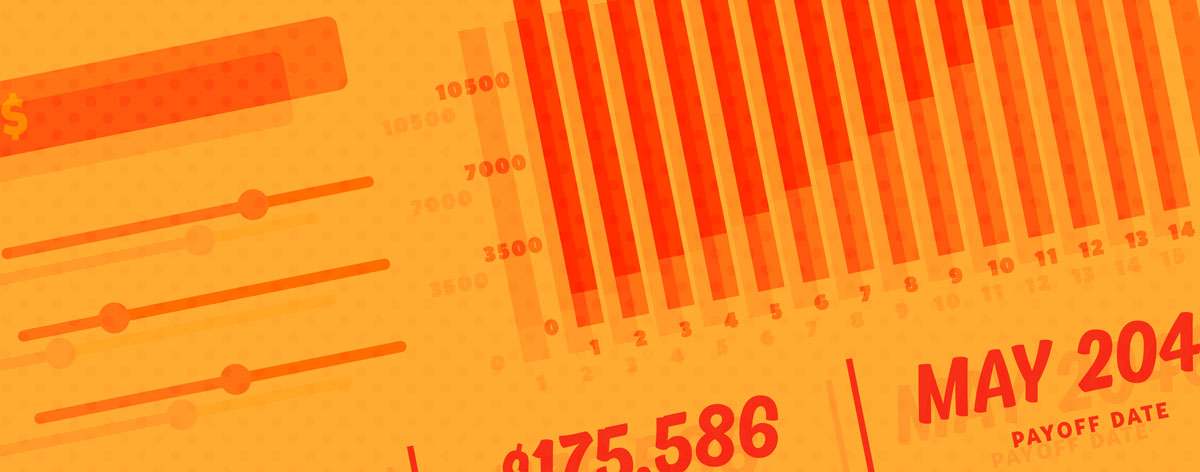Once you’ve made one of the biggest purchases of your life, it makes sense that you’ll want to keep it protected with homeowner’s insurance.
Unlike auto insurance, homeowner’s insurance isn’t required by law. So, why get it? Well, if you’re borrowing from a lender to finance your home purchase, they’ll likely require it. And even if you purchase your home without borrowing from a lender, home insurance is still vital. Without it, you might not be able to replace or repair your property if something happens to it. In exchange for the amount of coverage you get, the cost is absolutely worth it.
The major thing that homeowner’s insurance covers is, of course, the structure of your home. This is called dwelling coverage. With this, the insurance company can help pay to fix the damages or replace parts that are broken if something happens to your home, deck, garage, roof, and even the built-in appliances.
But homeowners insurance can do a lot more. It also provides coverage for the belongings in your house, liability coverage and medical expenses for injuries on your property, and the cost of additional living expenses if you’re forced to stay somewhere other than your home while it’s being repaired.
Each policy has a dollar limit for how much coverage it provides. If, for example, your home is a total loss in a fire, your insurance only pays up to your coverage amount. If the cost to replace everything is more than that, you’ll need to cover the difference out of pocket. Your lender likely requires a specific amount of insurance, but it may be wise to go above that.
Deciding how much home insurance coverage you want means estimating the value of your home (usually by considering the square footage and local construction costs) and how much risk you are willing to take. Additionally, most insurance companies adhere to the 80% rule. With this, they only fully cover replacement costs if you have coverage of at least 80% of your house’s value. If you have less than that, the insurer will likely only cover part of the cost, even if it’s under your full coverage amount.
The price you'll pay for home insurance depends on multiple factors. Aspects such as location, building characteristics or even claim history all help determine what rate you'll get on a plan.
Just like with other types of insurance, more coverage means that you’ll have to make up less of the costs should something happen, but you’ll pay more in premiums paid to the insurance company in exchange for coverage. The amount of money you pay before your insurance kicks in (called your deductible) also impacts how much your premium costs. The higher the deductible, the lower the premium, and vice versa.
If you need to use your insurance, you’ll submit a claim. This is an explanation of what happened and a request for the insurance to pay for it. It’s wise to make an inventory of your possessions and an estimate of their value, perhaps in a document with pictures. This can make it easier to submit a claim and ensure that you don’t miss anything, as well as get the claim approved.
There are two types of coverage for your property. First, there’s an actual cash value policy. With this, your insurance pays out claims based on how much the damaged item costs, minus depreciation. So, let’s say you bought a couch 10 years ago. After that much use and a few stains, that item has likely depreciated significantly (a.k.a. lost a lot of its value). An actual cash value policy gives you what the couch is valued at now, which may be significantly less than what you paid for it and less than what you need to buy a new couch.
That’s where a replacement cost policy can make a big difference. With this, the insurance company doesn’t take out depreciation, so you get enough money to replace the couch. Because of the added expense, a replacement cost policy will almost certainly be more expensive than an actual cash value policy.

The potentially damaging events that your homeowner’s insurance covers are called perils. The most common covered perils include…
- Fire and smoke
- Lightning
- Windstorms
- Hail
- Theft
- Vandalism
- Damage from a vehicle
But there are some dangerous events that your insurance likely won’t cover. Those include…
- Damage to expensive collectibles like jewelry or art
- Ground movement such as an earthquake or mudslide
- Volcanic eruption
- Flood damage
- Mold
- Acts of war
If you want those things covered, you may be able to expand a standard policy by paying for additional riders (changes to a standard policy that generally cost you extra), or you may have to purchase separate, specific insurance such as earthquake or flood insurance.
While it might not be as exciting as new furniture and decor plans, homeowner’s insurance is by far the most important thing you’ll add after purchasing a house. Having adequate protections for your new home and possessions within it makes all the difference in the event of an emergency.
Neither Banzai nor its sponsoring partners make any warranties or representations as to the accuracy, applicability, completeness, or suitability for any particular purpose of the information contained herein. Banzai and its sponsoring partners expressly disclaim any liability arising from the use or misuse of these materials and, by visiting this site, you agree to release Banzai and its sponsoring partners from any such liability. Do not rely upon the information provided in this content when making decisions regarding financial or legal matters without first consulting with a qualified, licensed professional.


